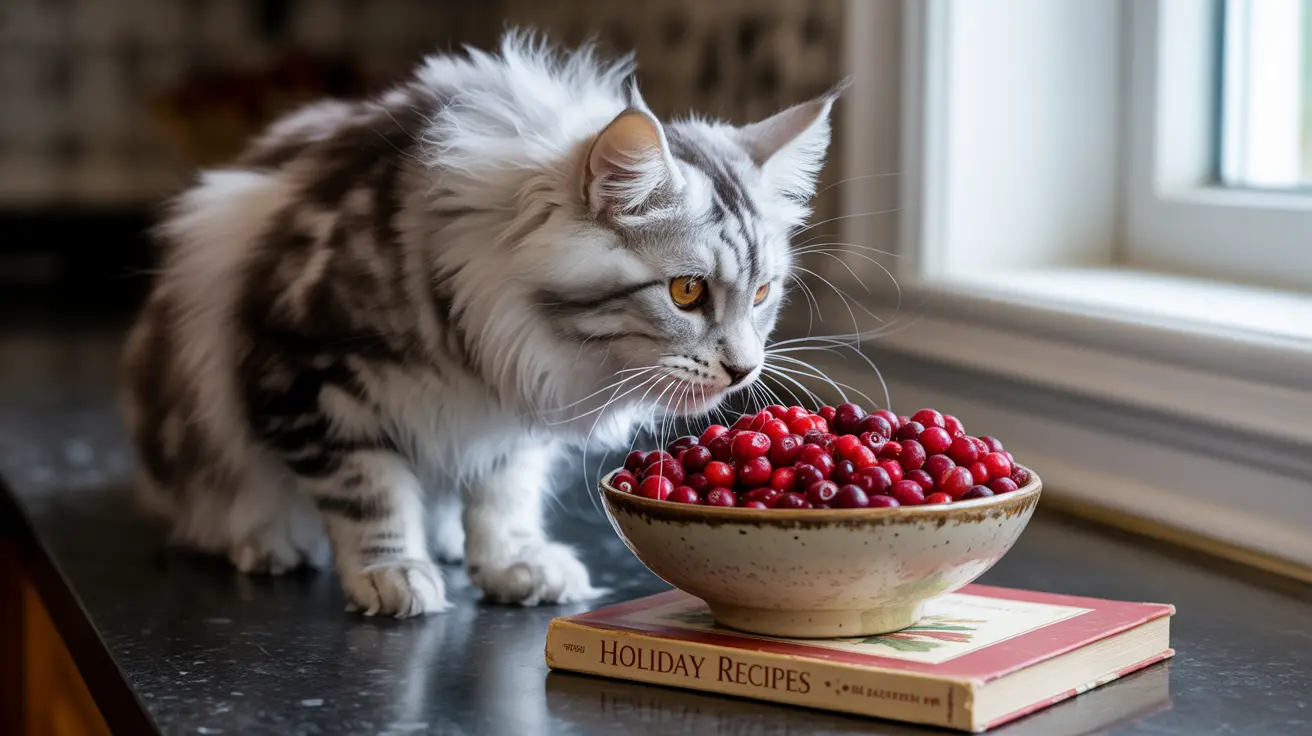The Truth About Cats and Cranberry Juice
Simply put, cats should not drink cranberry juice. Commercial cranberry juice products are particularly problematic for several reasons. They often contain added sugars, artificial sweeteners (some of which can be toxic to cats), and other additives that could harm your feline companion. Even pure, unsweetened cranberry juice poses risks due to its high natural sugar content and acidity.
As obligate carnivores, cats' digestive systems are designed to process meat-based proteins, not fruit juices. Their bodies lack the necessary enzymes to properly metabolize the sugars and carbohydrates found in cranberry juice, which can lead to digestive upset and other health issues.
Safe Alternatives to Cranberry Juice
If you're interested in incorporating cranberry into your cat's diet, there are safer options to consider:
- Fresh cranberries (in very small amounts)
- Veterinary-approved cranberry supplements
- Prescription urinary health diets that may contain controlled amounts of cranberry extract
However, remember that any additions to your cat's diet should first be discussed with your veterinarian.
Understanding the Urinary Health Connection
While cranberries contain compounds that may help prevent bacterial adhesion in the urinary tract, there's limited scientific evidence supporting their effectiveness in cats. The potential benefits don't outweigh the risks associated with giving cats cranberry juice.
For cats with urinary issues, veterinarians recommend:
- Increased water consumption
- Prescription urinary health diets
- Regular veterinary check-ups
- Proper litter box maintenance
Potential Risks and Dangers
Giving cranberry juice to cats can lead to several health issues:
- Gastrointestinal upset and diarrhea
- Blood sugar spikes
- Potential toxicity from artificial sweeteners
- Increased risk of urinary crystals due to oxalates
- Dietary imbalance
Best Practices for Cat Hydration
Instead of cranberry juice, focus on ensuring your cat stays properly hydrated through safe and effective means:
- Provide fresh, clean water daily
- Consider a pet water fountain
- Feed wet food to increase moisture intake
- Place multiple water bowls throughout your home
Frequently Asked Questions
Can cats safely drink cranberry juice or is it harmful to their health?
No, cats should not drink cranberry juice. Commercial cranberry juice contains harmful additives, and even pure cranberry juice can cause digestive issues due to its sugar content and acidity.
Are fresh cranberries a safe treat for cats, and how should they be given?
Fresh cranberries can be given as an occasional treat in very small, chopped amounts. However, they should make up no more than 10% of your cat's daily caloric intake.
Can cranberry products help prevent or treat urinary tract infections (UTIs) in cats?
While cranberries contain compounds that may help with urinary health, scientific evidence supporting their effectiveness in cats is limited. Always consult a veterinarian for proper UTI treatment.
What are the risks of feeding cranberry juice or cranberry supplements to cats?
Risks include digestive upset, blood sugar issues, potential toxicity from additives, and possible interference with urinary health due to oxalates.
How should I introduce cranberries into my cat's diet, and when should I consult a vet?
Always consult your veterinarian before introducing any new food items to your cat's diet, especially if your cat has existing health conditions or dietary sensitivities.
Remember, while cranberry products might seem like a natural health solution, cats have specific dietary needs that are best met through proper veterinary care and appropriate nutrition. When in doubt, always consult with your veterinarian about the best ways to support your cat's urinary and overall health.






